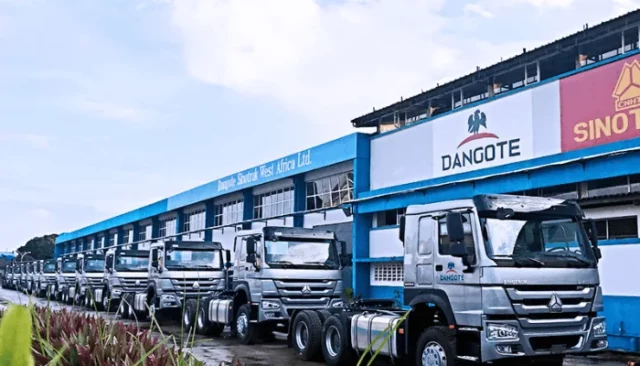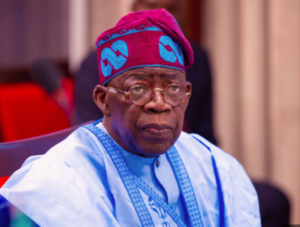
With less than 30 days to the commencement of the much-anticipated rollout of 4,000 Compressed Natural Gas (CNG) trucks by Dangote Refinery and Petrochemical Limited, industry stakeholders are consolidating support for the refinery’s direct-to-market fuel distribution strategy, slated for launch on 15 August, Newsbulletin Nigeria reports.
Market intelligence as of Friday confirmed that no fewer than 25 petroleum marketers had entered into distribution agreements with Dangote—an uptick from an initial three—indicating a swift realignment of market forces in favour of the indigenous refining giant.
However, this evolving dynamic is fuelling palpable anxiety among Nigeria’s tanker drivers, who fear massive job losses once Dangote commences direct supply of Premium Motor Spirit (PMS) and diesel to marketers and critical industries, bypassing traditional transport channels.
Direct Supply Strategy Gains Ground
Last month, Dangote Refinery announced plans to supply refined products directly to petroleum marketers, retail dealers, manufacturers, and key players in telecommunications and aviation sectors—a move widely perceived as a disruptive force within Nigeria’s downstream oil supply chain.
According to a senior Dangote Group executive, who spoke on condition of anonymity, marketers are registering en masse ahead of the August launch, as the refinery gears up to deploy its 4,000-truck fleet nationwide.
> “We started with three strategic partners; today, we have 25 marketers signed up. The direct distribution model is attracting strong market interest,” the executive disclosed.
Dangote’s strategy aims to address the country’s dependence on imported petroleum products and ensure consistent nationwide availability—particularly expected to stabilise pump prices and mitigate logistical bottlenecks in northern Nigeria.
Yet, the refinery’s increasing dominance is sparking industry-wide debate over market monopolisation, regulatory oversight, and long-term implications for competition.
Marketers Yield to Market Realities
Commenting on the shift, the National Publicity Secretary of the Independent Petroleum Marketers Association of Nigeria (IPMAN), Chinedu Ukadike, admitted marketers have little choice but to align with Dangote.
> “We have no alternatives. Dangote has become the dominant supplier of petroleum products within Nigeria and West Africa,” Ukadike stated.
He noted that prevailing market conditions—particularly soaring fuel costs—have severely impacted retail profitability, forcing marketers to embrace any scheme promising cost relief.
> “The reality is that high prices slow down product turnover, and running costs continue to mount regardless. Anything that brings down pump prices is a welcome development,” Ukadike explained.
Nevertheless, he warned that monopolistic control poses significant risks, urging other refineries—especially state-owned entities—to come onstream to foster healthy competition.
> “We must avoid a monopoly. More refineries are needed to stabilise prices and prevent market dominance,” he concluded.
Tanker Drivers Fear Displacement
While marketers align with Dangote’s direct delivery scheme, independent tanker drivers are increasingly concerned about their livelihoods.
Industry sources revealed that tanker drivers’ unions are apprehensive about being edged out as Dangote’s trucks take over fuel distribution to retail outlets and bulk consumers.
Currently, most drivers lift products from Dangote’s gantries. However, the impending rollout of Dangote-owned trucks raises fears that many independent operators may be rendered redundant.
Though some drivers may eventually be absorbed into Dangote’s logistics operations, industry watchers expect that many marketers may abandon their own fleets to capitalise on the cost-saving delivery model.
The National President of the National Association of Road Transport Owners (NARTO), Yusuf Othman, confirmed that stakeholders are holding consultations to determine a collective response.
> “Discussions are ongoing. We are engaging with stakeholders to evaluate the implications,” Othman noted, declining to elaborate further.
Similarly, the Natural Oil and Gas Suppliers Association of Nigeria (NOGASA) has called a National Executive Council meeting for 31 July in Abuja to deliberate on the potential fallout of Dangote’s direct distribution plan.
PETROAN Raises Monopoly Alarm
Meanwhile, the Petroleum Products Retail Outlets Owners Association of Nigeria (PETROAN) has expressed reservations, warning against what it termed a potential “Greek gift” from Dangote.
PETROAN’s National President, Billy-Gillis Harry, cautioned against complacency, drawing parallels with previous monopolies in the flour, sugar, and cement sectors, which he said failed to deliver lasting price relief.
> “History has shown that initial market-friendly moves by monopolies eventually reverse to consumer detriment. We risk repeating past mistakes if we fail to act prudently,” Harry warned.
He expressed concerns that once competition is squeezed out, petroleum prices could spiral beyond affordability.
Refinery’s Market Disruption Continues
The 650,000 barrels per day Dangote Refinery, which commenced operations in January 2024 with diesel and aviation fuel production, added PMS to its output in September 2024.
By February 2025, the refinery announced it had achieved 85% capacity utilisation, with projections for full-scale operations well within reach.
As the August direct distribution launch date approaches, Nigeria’s downstream sector faces an inflection point—one that could redefine market operations, reshape supply chains, and test the resilience of traditional players.




![[PHOTOS] MOK Movement Disburses ₦300,000, Distributes Food Items to the Aged in Offa During Weekly Empowerment Programme](https://newsbulletin.com.ng/wp-content/uploads/2025/10/FB_IMG_1760379043455-300x300.jpg)


